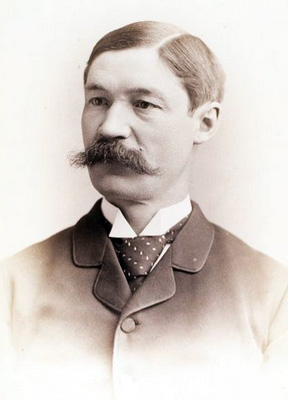| Profile | Major Works | Resources |
Silas Marcus MacVane, 1842-1914.

Canadian-born American classical-historicist at Harvard.
The son of Highland Scottish immigrants, Silas Marcus MacVane was born and raised in Bothwell, on Prince Edward Island in Canada. He went on to study at Acadia College in Nova Scotia, obtaining his BA in 1865. After a period in the Halifax bureaucracy, MacVane decamped for a academic tour in Germany, attending lectures in Berlin, imbibing the waters of the nascent German Historical School. MacVane was one of the earliest of the German-trained "new generation economists that would flood back to America.
Silas MacVane emigrated to the United States, taking up an appointment as a high school teacher in Roxbury, Massachusetts, while obtaining another BA degree from Harvard in 1873. In 1875, Harvard president Charles W. Elliott appointed Silas M. MacVane as instructor in economics at Harvard, thus becoming the second teacher of economics at Harvard (after professor Charles Dunbar). MacVane moved sideways in 1878 to become instructor in history at Harvard, leaving economics in the hands of new hire J. Laurence Laughlin. MacVane consequently climbed the academic ladder in the history department at Harvard - becoming assistant professor in 1883, and full professor of history in 1886. MacVane nonetheless continued active in economics until 1911.
A thorough Ricardian in his theory, Silas MacVane launched attacks on the budding Neoclassical in the Quarterly Journal of Economics. He got into polemics over the theory of distribution with Francis A. Walker and Alfred Marshall in 1887-88 (earning a chiding note from Marshall). MacVane subsequently turned his guns on the Austrians, garnering responses from Böhm-Bawerk and Wieser.
MacVane resigned from Harvard in 1911, and moved to Rome, Italy, partly to help advance the artistic careers of his daughters. His three daughters went on to fame of their own - Edith as a writer, Emily as an artist and Dorothy as an opera singer. MacVane died in Rome in 1914.
|
Major Works of Silas M. MacVane
|
|
HET
|
|
Resources on Silas MacVane
|
All rights reserved, Gonçalo L. Fonseca
